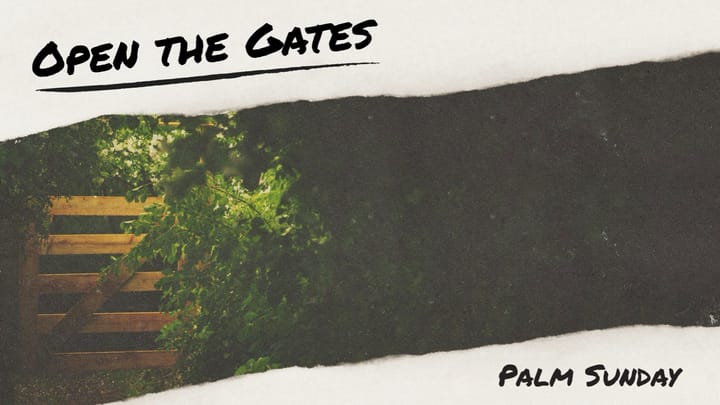Fairhaven Sermon 8-11-2024

Summary
In this week’s service, Rev. Peg Bowman delved into the profound message
of Charles Wesley’s hymn, “Tis Mercy All,” emphasizing God’s immeasurable
love for humanity. She highlighted the paradoxical nature of this love, a
mystery that surpasses even angelic understanding, yet is freely offered
to us through Jesus Christ's sacrifice. Rev. Bowman explained how Jesus
willingly gave up everything - His throne, intimate communion with the
Father, and ultimately His life – to redeem us from sin and offer eternal
life.
Drawing upon personal experiences like Paul and Silas being freed from
prison, Rev. Bowman illustrated that encountering Christ brings liberation
from spiritual darkness and a transformation of our hearts. She reminded
the congregation that because Jesus is Lord of all creation, we inherit
fullness in Him - not just salvation, but a rich tapestry of blessings
both earthly and eternal. Rev. Bowman challenged us to live in response
to this overwhelming love, allowing it to shape our actions and inspire a
life of faith and service.
Transcript
Well, welcome to the second installment of our summer series featuring stories from the hymns. And this Sunday we'll be focusing on the hymn that we just sang, written by our own Charles Wesley, And Can It Be, number 363 in the hymnal. This hymn is one of my personal favorites. It has a very special place in Methodist history as well as in the hearts of many Christians around the world, particularly in the UK.
This hymn always makes the top 10 favorite hymns list in England, currently resides at number six. But it's not well known in the States, but the churches here that know it love it. As with all the hymns, it helps to know the story behind it, when it was written, why it was written, what inspired it. And we're very fortunate with this particular hymn that Charles Wesley wrote extensively in his diary about what he was thinking and experiencing in the days leading up to writing this hymn.
The text of the hymn was written in 1738, which is 38 years before the United States became a country, written in thanksgiving to God for Charles' conversion on May 21st of that year, which was Pentecost Sunday that year. And the words were set to a number of different tunes over the years, but the best known and nowadays really the only tune is the one that we just sang, written in the 1800s. The music is said to have been influenced by the music of George Frederick Handel, by the way, who wrote The Messiah, which could help explain why it's a little bit challenging to sing and also why it's worth the effort. But back to the story.
So the year 1738, by that time, the Wesley brothers, John and Charles, had already started ministries to the poor in Oxford. They founded the Methodist movement, and Methodism, of course, was a movement back then, a reforming movement within the Church of England. They had both gotten ordained. They had both already ministered all over Great Britain and in parts of the American colonies, including evangelizing Native Americans and visiting slave plantations in Georgia.
And they had also preached in the dockyards of Bristol. They had done all these things for which they became famous, but without ever experiencing on a personal level the salvation of God or the presence of the Holy Spirit in their lives. The Wesleys accomplished all these things based on their intellectual knowledge of the Bible and what it says God requires of people. But the message of Jesus, His forgiveness, His death and resurrection, His mercy to sinners, even though this all was in their heads and in their preaching, it hadn't yet touched their hearts, which goes to show it's possible to know a lot about God and sit in church every week and read the Bible and pray and not actually know God.
It's possible to grow up in the church like the Wesleys did, with a pastor father, and dedicate one's life to serving the church without grasping that the real church, the body of Christ, is the family of God and has nothing whatsoever to do with a human institution. So both John and Charles in 1738 were sensing that something was missing in their lives and in their faith. And they were touched very, very deeply spiritually when they got to know some local Moravians. Now the Moravian movement started in the Czech Republic.
It was a Protestant movement that predated Martin Luther by about 100 years. And the Moravians were persecuted and driven underground in their home country, so they became refugees of conscience, scattered all throughout Europe and the colonies, which is how the Wesleys met them. Little side note, by the way, some of the Moravians came to Pennsylvania and they founded the town of Bethlehem, PA. So the Moravians were known for having very personal relationships with God, and they were known for a very simple way of life that included a lot of scripture reading and prayer and singing.
Their faith was not complicated. It was very easy for the average person to grasp, but at the same time it ran very deep and it required a deep commitment. And in May of 1738, the faith of the Wesleys Moravian friends began to sink in with the brothers and both John and Charles experienced what they called spiritual awakenings. And Charles came first by three days.
So I want to share with you Charles's faith experience in his own words, paraphrasing into modern English, because English has changed a little bit in 300 years. So the date as mentioned before is Pentecost Sunday, May 21st, 1738. On that day, Charles was feeling very ill and was recuperating in the home of some friends who lived in London. And the fact that Charles was not in a church on Sunday tells us how lousy he was feeling.
He was resting on the sofa in the living room of the house, and I'll pick up now with his own words. He says, I woke up in hope and expectation of God's coming. At 9 a.m.
, my brother John and some friends came and sang a hymn to the Holy Spirit, which gave me great comfort. In about half an hour, they left, and I started to pray using words similar to these. A side note on this, Charles is talking about words that were taken from Scripture. Charles had a habit of praying the Scriptures, which is always a good idea.
Talking with God about the things that God has said really opens our minds and our hearts to understanding God. Anyway, on that day, Charles was praying, and he writes that he said to God, quoting the Scriptures, Oh, Jesus, you have said, 'I will come to you,' and you have said, 'I will send the Comforter to you,' and you have said, 'My Father and I will come to you and make our home with you.' You are God, and you cannot lie. I totally trust your promise.
May it come true in your time and in your way. And having prayed this, Charles says, I was about to go back to sleep in the quietness and peace of the house when Mrs. Musgrave came in, or so I thought by the sound of her voice, and she said, 'In the name of Jesus of Nazareth, arise and believe, and you shall be healed of all your infirmities.' Now, Charles writes he was not entirely sure this was the voice of Mrs.
Musgrave. He wasn't sure who she was talking to, because he only heard her voice from the next room. But he continues with his story, saying, I wondered what motivated her to speak in this way, but the words cut to my heart. I sighed and said to myself, 'Oh, that Jesus would speak this way to me for my recovery of body and soul.
' I rose and opened the Bible nearby, and the first words I saw were, 'And now, Lord, what is my hope? Truly my hope is in thee.' And then I opened the book again and read Isaiah 40, verse 1. Comfort ye, comfort ye my people, says your God. Speak ye comfortably to Jerusalem, and cry unto her that her warfare is accomplished, that her iniquity is pardoned, for she has received the Lord's hand double for all her sin.
A little side note here, those also happened to be the opening words of Handel's Messiah, and Charles and Handel knew each other. Coincidence? I don't know. Charles continues, I now felt totally at peace with God and rejoiced in the hope of loving Jesus. My mood for the rest of the day was mistrust of my own weakness, which I hadn't known until now.
I saw that I stood by faith, always by faith, which kept me from falling, even though I am always sinking deeper in sin. I went to bed still very aware of my own weakness, and I humbly hoped to become more and more weak to be more confident of Jesus' protection. Charles wrote later in his journal that the Spirit of God chased away the darkness of his unbelief, and two days later, on Tuesday, May 23rd, he wrote, I woke up under the protection of Christ and gave myself up, soul and body, to him. The very next day, May 24th, his brother John had the experience we've all heard about, where his heart was strangely warmed while at worship with the Moravians in London.
John immediately shared this good news with Charles, and Charles wrote, Towards 10, my brother was brought in triumph by a troop of our friends and declared, 'I believe!' We sang the hymn with great joy and parted with prayer. What a difference a day can make. Before these few days, John and Charles Wesley were struggling to do God's will in their own power, and they were constantly running into roadblocks and discouragement. After these events, their ministries caught fire and changed the course of history worldwide.
So do we want to make a difference in our world, in the lives of our relatives and friends? Then we need to follow in the footsteps of the Wesleys. We need to read the Bible, hear and believe God's promises, and pray. All godly work begins and ends with prayer. All of this, all of this is the context in which today's hymn was written.
So if you have a hymnal on hand, it might help to look at it at this point. It's number 363, it's the one we just sang. And again, I'll need to sort of translate the words into modern English because it's very old English, this text. But we'll start with 363.
Verse 1, And can it be that I should gain an interest in the Savior's blood? Charles as a new believer can hardly believe that he's been accepted into God's kingdom. He takes nothing for granted. He does not even begin to think to himself, Hey, I've got a seminary degree, I've got experience in preaching, anything like that. As the apostle Paul once said, Those things are filthy rags next to the joy of knowing Jesus.
But the words that Charles uses here could almost be taken from the world of investing. To have an interest in something is to be a part owner. It's kind of like Charles has just bought stock in KOG, the kingdom of God, right? And what a humbling investment this is. The blood of Jesus shed for every sinner covers you and me and Charles Wesley.
We are all totally equal in the blood of Jesus, equally in need of forgiveness and equally saved. And Charles says, Can it be? We haven't done anything to earn this. We haven't paid for it. Jesus paid for the KOG stock with his life and he gave it to you and me for free.
And Charles goes on, Died he for me who caused his pain, for me who him to death pursued. Again, confessing that our sin is what makes Jesus' death on the cross necessary. Amazing love. How can it be that you, my God, should die for me? Verse two, 'Tis mystery all the immortal dies.
This thought really is beyond human understanding. I mean, God, who by definition lives forever and cannot die, has found a way to die for our sakes. Who can explore this strange design? Charles asks. People have spent the last 2,000 years trying to explain how Calvary works.
How is it that Jesus' death on the cross saves us? How is it that the immortal God should die and why was it necessary? I mean, you want to start an argument among theologians? Toss those questions into a room and shut the door. They'll be at each other. Charles Wesley says, In vain the firstborn seraph tries to sound the depths of love divine. How can anyone measure the depth of God's love? We can't.
God's love cannot be comprehended. And even the citizens of heaven, thank you, the angels themselves can't put it into words, can't find the end of God's love. Charles says, 'Tis mercy all let earth adore. Our job is not to figure out how, but simply to accept God's mercy as it's offered and worship Jesus.
Let angel minds inquire no more. In verse three, Charles turns his attention to Jesus specifically. He left his father's throne above so free, so infinite his grace. And that phrase in parentheses is just an exclamation of praise that Charles can't hold back on.
And he goes on to describe Jesus, Emptied himself of all but love and bled for Adam's helpless race. That is the Christian message in a nutshell right there. For all of Adam's descendants, this is all we need to know, and it's all we need to share. Jesus gave up everything, his throne in heaven, his intimacy with God, and his very life for people who were and are unable to save themselves.
That's the gospel message right there. Charles says, 'Tis mercy all, immense and free, for oh my God, it found out me. It's all God's mercy from beginning to end, none of our doing. God searches us out, and if we're honest, we know that God is so far above us and so perfect that if we were to stand in God's presence just the way we are, it would destroy us because we're not able to stand in God's perfect holiness and stay alive.
But Jesus changes all this. His love for us changes the whole story. Verse four refers to the events in Acts 16, which we heard about a moment ago, where Paul and Silas were thrown in jail under false accusations. They were in prison singing songs to God while the other prisoners listened when there was an earthquake, and the foundations of the jail were shaken, and the cell doors didn't fit anymore, so they popped open, and the prisoners were free.
And Charles Wesley says it was like that for him when he finally saw the truth and the mercy of Jesus. He says, Long my imprisoned spirit lay bound up in sin and nature's night. When God's eye diffused a quickening, right, a quickening's an old-fashioned word meaning bringing back to life. God's eye brought him back to life just one glance.
And he continues, I woke, the dungeon flamed with light, my chains fell off, my heart was free, I rose, went out, and followed thee. Just like Paul and Silas from that prison, God set Charles Wesley free not only from his sin, but from all his efforts to be good or to be holy. And once he was free, Charles was then able to follow Jesus the way he'd always wanted to. And verse 5 is Charles' reflection on all that has happened.
No condemnation now I dread. All the fear of judgment or hell is totally gone, not because of anything Charles has done, but because of what Jesus has done. Jesus and all in him is mine. What an amazing thought that is.
It's not just that Jesus saves us. It's not just that we get to go to heaven. It's that we now have Jesus and everything else. All things in heaven and on earth are in Jesus, and in Jesus, all of it is ours.
Think on that for a moment. We are, as Charles says, alive in Jesus, our living head, and clothed in God's righteousness. Everything that Jesus has is ours in him. In this truth, Charles and every one of us can be bold enough to approach the eternal throne of God and claim the crown of eternal life through Christ my own.
And my own, of course, is an old-fashioned way of saying my beloved. So it's never about what we do. It's about what Jesus did. In Jesus, each one of us has a crown of life waiting for us, waiting for our arrival in God's kingdom.
Picture that for a moment. As we look around this congregation, picture a crown on every head. Jesus gave it all for us so that we could be with him forever. Jesus gave these crowns to us.
And for that reason and many more, we sing his praise.


